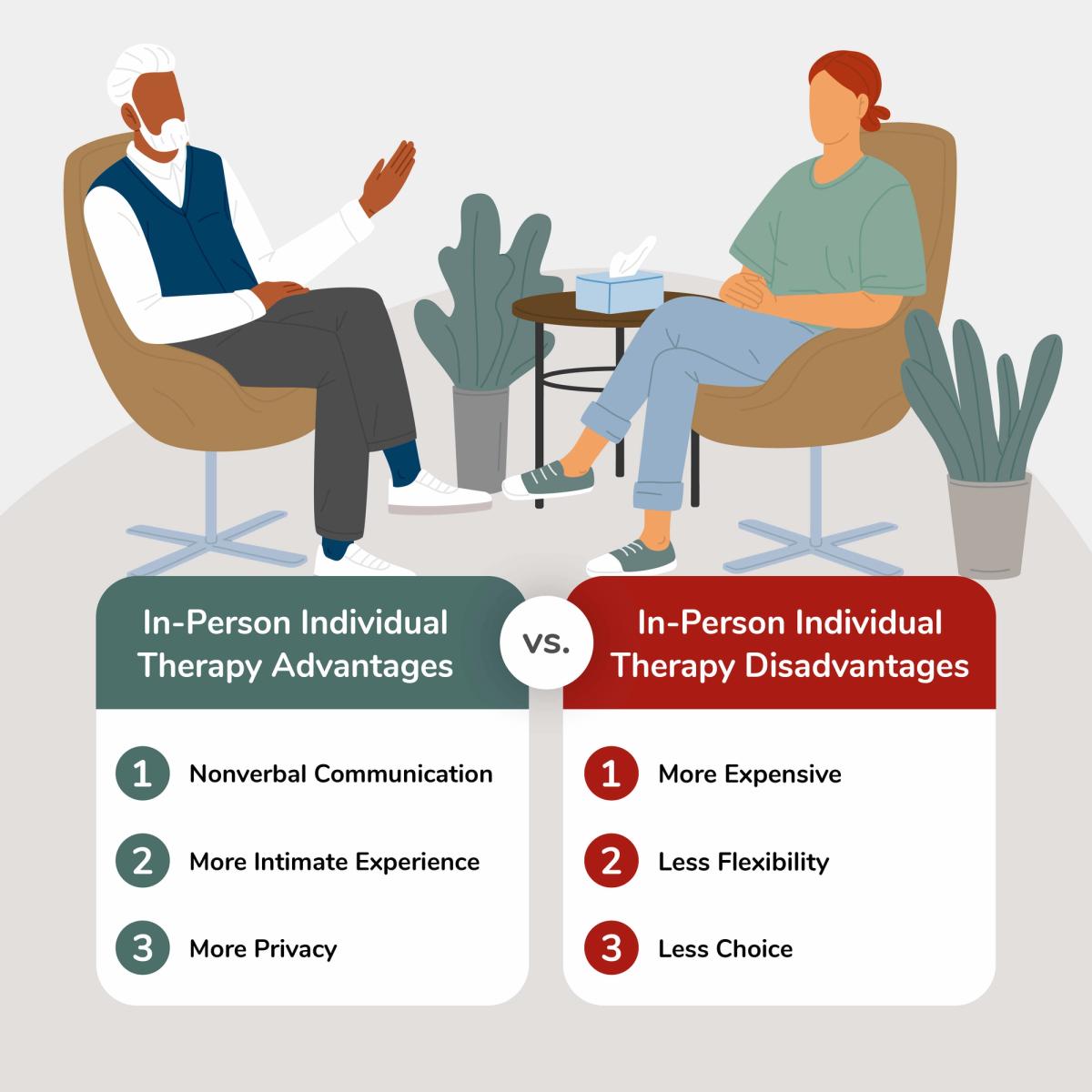When is the right time your child needs Individual Therapy For Teens
Wiki Article
Comprehending the Importance of Mental Therapy for Teenage Growth and Wellness
Psychological therapy plays a crucial duty in the advancement and wellness of young adults. It attends to an array of mental wellness concerns that can hinder their growth. Via therapy, adolescents can learn necessary coping methods and improve their emotional knowledge. This procedure promotes strength, enabling them to better navigate life's difficulties. Many still hesitate to involve in conversations concerning mental health and wellness. Checking out the factors behind this hesitation reveals much deeper understandings right into the teenage experience.The Influence of Adolescent Mental Wellness on Overall Development
The interaction between teenage psychological health and general development is profound and multifaceted. Throughout the essential stage of teenage years, individuals undertake significant physical, psychological, and social modifications that shape their identification and future. Psychological health and wellness plays a pivotal duty in this process, influencing scholastic performance, partnerships, and self-worth. Positive mental wellness fosters strength and adaptability, enabling teens to navigate obstacles effectively. Alternatively, mental health issues can impair cognitive features, disrupt social communications, and hinder psychological law, bring about a waterfall of developing troubles.Additionally, the environment in which adolescents expand-- encompassing household characteristics, peer influences, and social assumptions-- engages with their mental health, more complicating their developmental trajectory. Comprehending the significance of mental wellness in this stage is essential for advertising healthy growth and ensuring that teens can flourish, both throughout their developmental years and past. Prioritizing psychological wellness assistance can significantly enhance their overall development and future capacity.
Common Mental Health And Wellness Issues Encountered by Teenagers
While steering with the intricacies of adolescence, numerous young adults come across a range of psychological health issues that can substantially affect their lives. Anxiousness problems prevail, usually defined by too much worry or anxiety that conflicts with everyday activities. Depression is an additional common issue, showing up as consistent unhappiness, loss of interest, and difficulty in functioning. Furthermore, behavioral issues, such as opposite bold problem, can lead to conflicts with authority figures and a battle to adhere to societal standards. Consuming problems, including anorexia and bulimia, might occur as teenagers face body image and societal stress. Ultimately, chemical abuse can establish as a misdirected effort to handle psychological distress. These psychological wellness difficulties, if unaddressed, can hinder academic performance and interpersonal relationships, emphasizing the requirement for understanding and support within this prone age group.
The Duty of Therapy in Structure Coping Approaches
Therapy plays a significant duty in outfitting teenagers with effective coping techniques to navigate their mental health and wellness obstacles. With organized sessions, specialists assist teens identify and understand their emotions, cultivating self-awareness. By using numerous strategies such as cognitive-behavioral therapy, teens find out to test unfavorable idea patterns and replace them with useful ones. This procedure enables them to create healthier actions to stress factors.In addition, therapy provides a risk-free setting for teens to practice these strategies, assisting in the shift from concept to real-life application. Role-playing and situation analysis enable them to practice coping devices in a supportive room. As teenagers face distinct stress-- academic demands, social characteristics, and identification expedition-- having individualized dealing techniques comes to be vital. Ultimately, therapy not just addresses prompt worries however also instills long-lasting abilities that enable teenagers to handle future difficulties, advertising total psychological well-being and strength in their advancement.
Fostering Strength and Emotional Intelligence Via Therapy
Exactly how can therapy support strength and psychological knowledge in young adults? Treatment provides a safe setting where teenagers can discover their thoughts, feelings, and behaviors. Via guided tasks and conversations, therapists assist young adults identify and understand their sensations, cultivating psychological recognition. This recognition is a foundation of psychological intelligence, allowing them to feel sorry for others and manage social partnerships efficiently.Furthermore, treatment outfits teenagers with tools to navigate life's difficulties, advertising strength. By resolving past traumas, disappointments, and stressors, they discover to establish coping systems that encourage them to encounter difficulty. Specialists frequently encourage goal-setting, which infuses a feeling of objective and success.
As young adults exercise these abilities in treatment, they end up being a lot more experienced at taking care of unpredictabilities and troubles (Individual Counselling Services). Ultimately, this nurturing of resilience and emotional knowledge prepares them for the complexities of grown-up life, boosting their overall mental health and wellness and well-being

Urging Open Dialogue Concerning Mental Health And Wellness in Teenagers
What strategies can effectively promote open discussion about mental health amongst teens? Creating a secure and encouraging atmosphere is essential. Parents and teachers must urge discussions by stabilizing discussions about mental health, stressing that it is a substantial aspect of overall wellness. Energetic listening plays an important role; grownups need to be non-judgmental and mindful when teenagers share their concerns or sensations.Integrating psychological wellness education right into college curriculums can additionally promote open dialogue. Workshops, peer assistance teams, and mental health and wellness awareness projects can equip young adults to share themselves extra freely. In addition, using social media sites platforms can be helpful, as they are typically where teenagers feel most comfortable communicating. By promoting an environment of depend on and openness, grownups can aid teens recognize that reviewing mental health and wellness is not only acceptable yet essential for their growth and psychological health and wellness.
Regularly Asked Questions
Exactly How Can Moms And Dads Recognize Indications of Mental Health Issues in Teenagers?
Parents can identify indicators of mental wellness issues in young adults by observing modifications in behavior, mood swings, withdrawal from activities, declining academic performance, changes in sleep or hunger, and sharing feelings of sadness or stress and anxiety.What Kinds of Treatment Are The Majority Of Efficient for Teens?
Cognitive Behavior Modification (CBT), Dialectical Behavior Modification (DBT), and team treatment are amongst one of the most effective kinds for teens. Individual Therapy For Teens. These techniques foster dealing abilities, emotional law, and give peer assistance, crucial for teenage mental healthExactly How Can Treatment Support Academic Efficiency in Teenagers?

What Should Teens Anticipate Throughout Their Very First Treatment Session?
Throughout their first treatment session, teenagers can anticipate an inviting setting, an intro to the specialist, discussions regarding their concerns, and developing objectives (Individual Counselling Toronto). Privacy and the restorative procedure will certainly likewise be discussed to foster convenience and trustExactly How Can Teenagers Discover a Specialist That Fits Their Demands?
Teenagers can locate an appropriate specialist by looking for recommendations from trusted adults, investigating on the internet directories, considering specialties, and organizing preliminary appointments to evaluate compatibility and communication styles, inevitably ensuring a helpful restorative connection.
Report this wiki page